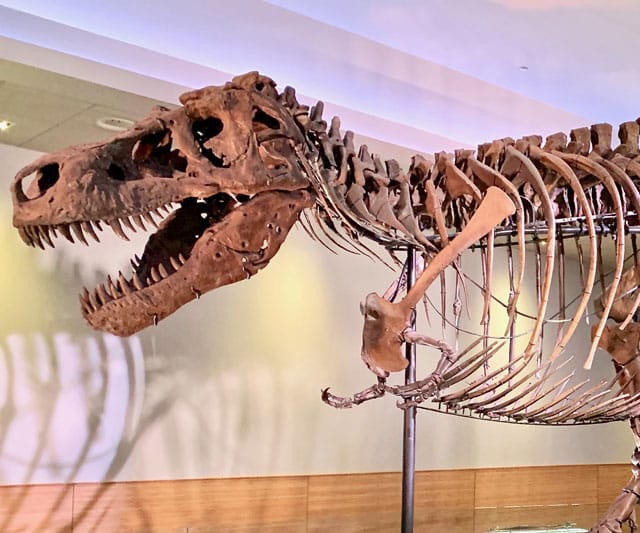Darlene Williams died in 2020, more than a dozen years after the $8 million sale of a fossilized skeleton of a Tyrannosaurus rex named Sue that was found on her family’s ranch in South Dakota in 1990.
Now, her children are fighting over who should inherit her money.
Before her death in 2020, Williams had written two wills.
In a 2017 will, she appointed one of her daughters, Sandra Williams Luther, as the personal representative of her estate. In another will, written in 2020, she designated that same daughter to be her sole heir and the sole executor of her estate.
But another daughter, Jaqueline Schwartz, has argued in court that the second will is not legitimate and that it is legally flawed.
According to Schwartz’s objection, just days before the 2020 will was dated, her mother was “critically ill” and admitted to a hospital.
Schwartz has argued that her mother was “susceptible to undue influence” because of low oxygen levels and severe anemia, which made it difficult for her to communicate, and that only one visitor was allowed at a time in keeping with coronavirus pandemic restrictions.
In February, Schwartz filed another petition, which asked a court for permission to bring claims against Luther and another sibling, Carson Williams, over what Schwartz said was the mismanagement of her mother’s funds.
Less than two weeks before her mother’s death, Darlene Williams appeared to have sold her home, Schwartz’s petition said, but her mother’s signature on the settlement documents did not match others.
The proceeds from the sale of the house, which amounted to around $225,000 as reported by The Associated Press, were intended to go to Darlene Williams, and after she died, to her estate, according to the petition.
Instead, Schwartz has said, they were “converted and misappropriated” by Luther and Carson Williams, who collaborated to enrich themselves after their mother’s death.
Lawyers for the siblings did not respond to multiple requests for comment Friday and Saturday. It is not clear how much each sibling could have gained from their mother’s estate.
c.2023 The New York Times Company. This article originally appeared in The New York Times.







